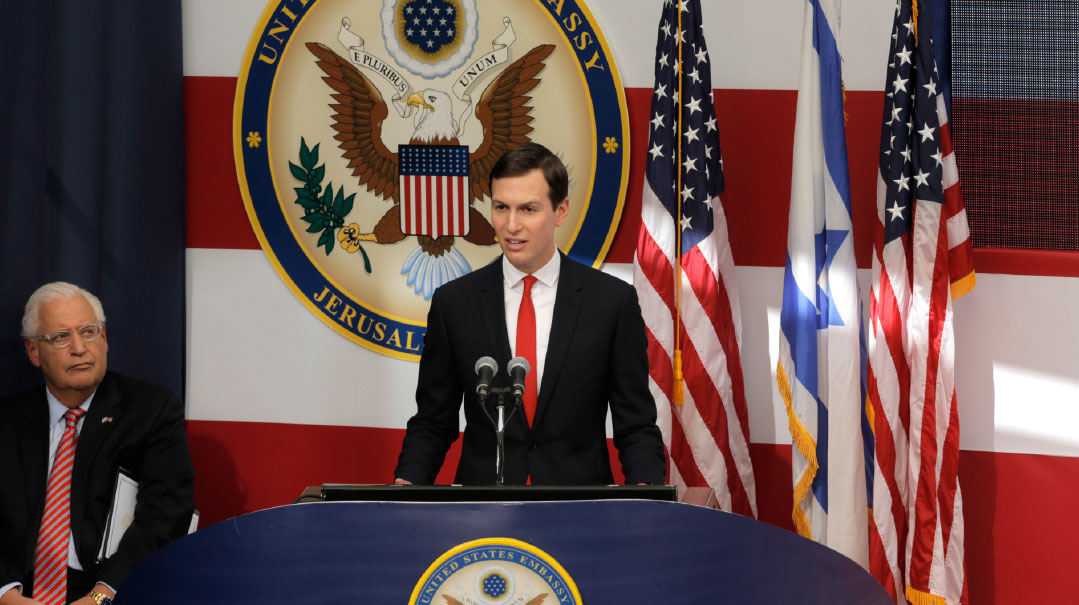Will He or Won’t He?

It’s no longer clear what Israel will be able to annex and when

July 1 was supposed to enter the history books as the day when Israel extended sovereignty over all — or at least some — of the settlements in Judea and Samaria. But when the moment of truth arrived, the day passed in silence. Not only did nothing happen, we didn’t even get a hint of what might happen in the coming days.
Prime Minister Netanyahu hasn’t given up on his desire to move forward. For him, it’s about his personal legacy. He’s also aware that he’ll never get better terms. With a wide coalition in Israel and a friendly administration in Washington, the circumstances for annexation are ideal. As he and his Likud partners have said, it’s an opportunity not to be missed. But the events of the last few weeks have stymied the issue, and now it’s no longer clear what Israel will be able to annex and when.
First, there are the power battles within the Trump administration itself. While US ambassador to Israel David Friedman is an enthusiastic supporter of annexation, Jared Kushner, Trump’s son-in-law and close advisor, has reservations. Kushner is the man responsible for selling the plan to the Gulf States — Saudi Arabia and the UAE. He hears their objections, and it seems his enthusiasm is waning.
In addition, Trump has his hands full on several fronts: the COVID-19 pandemic, the flailing economy, and the George Floyd protests. Annexation is a risk. It might pass without protest, or it could inflame the Middle East. Trump’s Evangelical base is reportedly pressuring Trump to finish the job. Trump certainly needs those voters in November, but there are other considerations.
It’s worth noting that as of this writing, the president has not personally involved himself in the debate. Rather, Kushner’s peace team is leading the way and drafting the final recommendations for Trump to sign. Kushner takes the view that if annexation is going to happen, it needs to happen in a way that advances the peace plan in its entirety, and not in just one aspect. That is, if you’re giving something to Israel, make a concession to the Palestinians. One option reportedly considered is to transfer parts of Area C, currently under Israeli civil and military jurisdiction, to the Palestinians and call it Area B. Naturally, this proposal wasn’t greeted with much enthusiasm in Jerusalem, and White House special representative Avi Berkowitz returned to Washington last week after three unproductive meetings on the issue with Netanyahu.
Negotiations continue, and both sides understand that if nothing is decided by July, the chances of anything happening will lessen. Too close to November, the move could look politicized. And if Biden wins, he won’t necessarily commit himself to the policy change. So the time to act, from Israel’s perspective, is soon.
And yes, things have changed in Israel, too. Coalition partners Benny Gantz and Gabi Ashkenazi don’t have a veto on the matter, but so far, they’ve managed to “kill it with kindness.” The two are arguing that as long as Israel has one million workers unemployed, now is not the time to deal with security issues. They’re also arguing — and the polls bear them out — that the public isn’t interested in annexation. People in Israel are worried about one thing now: their livelihoods. This situation makes it difficult for Netanyahu to create momentum, and could lead to the prime minister pushing off the issue until the close of summer.
(Originally featured in Mishpacha, Issue 818)
Oops! We could not locate your form.













